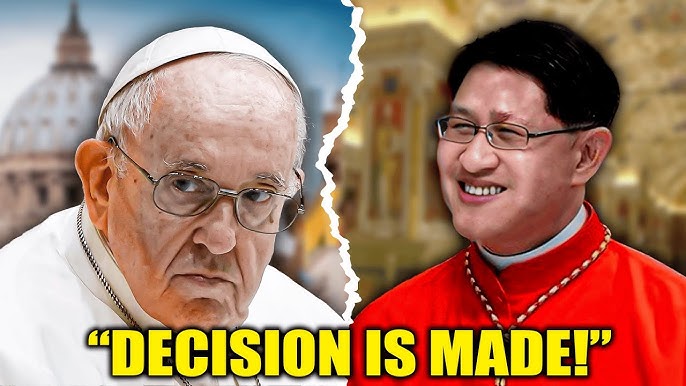By Our Reporter
Uganda will not be represented in the next papal conclave, the Vatican’s high-stakes electoral assembly tasked with selecting a new pope, due to age-related canonical restrictions on voting eligibility. The announcement was made by the Apostolic Nuncio to Uganda, Archbishop Luigi Bianco, who confirmed that Uganda’s only cardinal, His Eminence Emmanuel Wamala, is now ineligible to cast a vote, having surpassed the canonical age limit of 80.
Cardinal Wamala, who turned 98 in December 2024, has been a towering figure in Uganda’s Roman Catholic community and was elevated to the College of Cardinals in 1994 by the late Pope John Paul II. Despite his ongoing spiritual influence and moral leadership, his advanced age bars him from active participation in the election of a new pope — a protocol set out in canon law.
Canon Law & The Age Limit
The rules governing the election of a pope are detailed in the Apostolic Constitution Universi Dominici Gregis, promulgated by Pope John Paul II in 1996 and updated by Pope Benedict XVI. According to this document, only cardinals who have not yet reached their 80th birthday on the day the papal office becomes vacant are eligible to enter the conclave and vote.
This stipulation was introduced to ensure that the voting cardinals possess the physical stamina and mental sharpness required to undertake the demands of what is often a prolonged and intense deliberative process. As of now, there are 136 cardinal electors out of the 241 members of the College of Cardinals, with that number fluctuating as cardinals reach the age limit or new appointments are made.
Understanding The Papal Conclave
The papal conclave is the secretive and sacred process through which the College of Cardinals selects a new Bishop of Rome — the pope — who also serves as the head of the worldwide Catholic Church. The process begins upon the death or resignation of a reigning pope, as was the case in 2013 with Pope Benedict XVI’s historic resignation.
The conclave takes place in the Sistine Chapel in Vatican City and follows a detailed ceremonial and procedural order:
- Preparation and Oath – Eligible cardinals are sequestered within the Vatican. Prior to voting, each cardinal takes a solemn oath of secrecy and fidelity to the Church.
- Voting – Balloting is conducted in strict confidentiality. Each cardinal writes the name of his chosen candidate on a paper ballot and places it in a chalice atop the altar. The votes are then counted and recorded.
- Majority Requirement – A two-thirds majority is required for a pope to be elected. If no candidate achieves this threshold in the first rounds, voting continues up to four times per day (two sessions of two ballots) until a new pope is chosen.
- Announcement and Acceptance – Once a cardinal receives the necessary votes, he is asked whether he accepts the position. Upon acceptance, he chooses a papal name and is then introduced to the public with the traditional Latin declaration: “Habemus Papam” — “We have a pope.”
- Symbolic Acts – The new pope appears on the balcony of St. Peter’s Basilica to offer his first blessing, Urbi et Orbi (“to the city and the world”).
Uganda’s Legacy In The Church
Though Uganda will not have a voting presence in the next conclave, the country remains an integral part of the global Catholic community. Cardinal Wamala’s elevation three decades ago marked a historic moment for the Church in East Africa and underscored the Vatican’s recognition of the region’s vibrant faith.
Uganda boasts over 13 million Catholics, nearly 40% of its population, and has played host to papal visits from Pope Paul VI (1969), Pope John Paul II (1993), and Pope Francis (2015), each reinforcing the country’s significance in Catholic missionary and pastoral efforts.
While Uganda awaits the appointment of a younger prelate to the College of Cardinals, Archbishop Bianco emphasized that the absence of a voting cardinal does not diminish the country’s standing within the global Church.
“The spirit of Uganda’s Catholic faithful remains strong, and our prayers will accompany the cardinal electors during the conclave,” said Archbishop Bianco.
As the Catholic world prepares for a possible transition, attention turns to the College of Cardinals — a diverse body increasingly reflective of the global Church’s reach, even if not all voices, such as Uganda’s, will be present within the Sistine Chapel walls.
Have An Advert Or Article You Want Us To Publish? Email: swiftnewsug@gmail.com


